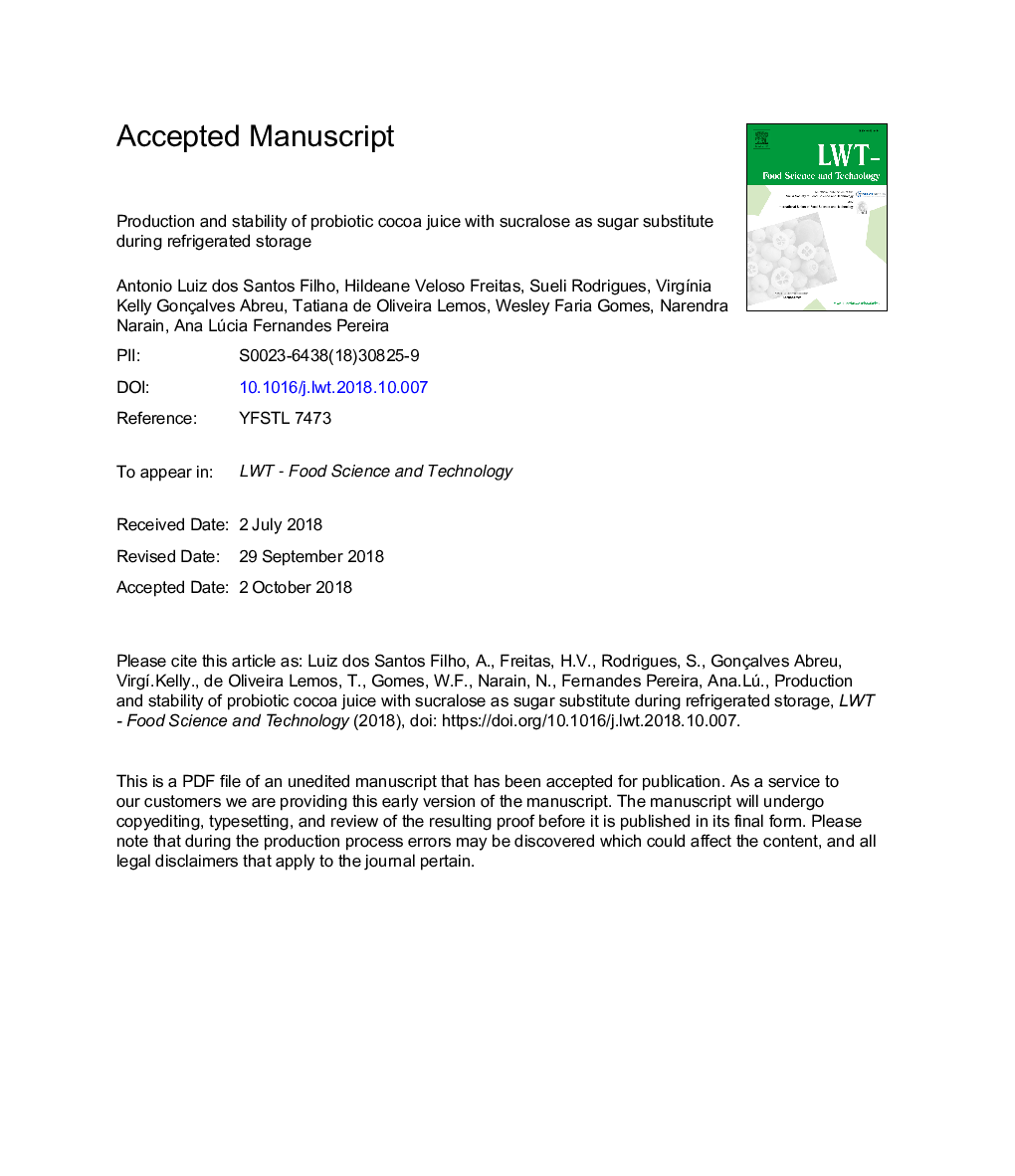| Article ID | Journal | Published Year | Pages | File Type |
|---|---|---|---|---|
| 11024888 | LWT - Food Science and Technology | 2019 | 34 Pages |
Abstract
This study aimed to evaluate the cocoa juice, obtained from the pulp, as a vehicle for the probiotic microorganism. The effect of sucralose as a sugar substitute during refrigerated storage for 42 days was also evaluated. The viability of Lactobacillus casei, sugars, lactic acid, pH, phenolic compounds and antioxidant activity were performed. The optimum conditions for probiotic juice production were initial pH 6.2, 33â¯Â°C and 12â¯h of fermentation. During the fermentation, glucose was the carbohydrate consumed. The ascorbic (44.26â¯Â±â¯0.05 to 43.90â¯Â±â¯0.02â¯mg/L) and citric acid (2.77â¯Â±â¯0.02 to 2.96â¯Â±â¯0.01â¯g/L) were maintained. The phenolic compounds (40.00â¯Â±â¯0.02 to 49.63â¯Â±â¯0.04 mg/100â¯mL) and the antioxidant activity, the latter measured by ABTS (0.08â¯Â±â¯0.00 to 0.18â¯Â±â¯0.11 μM/mL) and DPPH (1.07â¯Â±â¯0.00 to 1.15â¯Â±â¯0.02 μM/mL) methods, increased. During storage, the viability of the juice sweetened with sucrose increased to 8.99â¯Â±â¯0.02 Log CFU/mL until 21 days. The addition of sucralose kept the viability within limits for exerting health beneficial up 42 days (7.05â¯Â±â¯0.04 Log CFU/mL). Thus, the cocoa juice is a viable matrix for the probiotic juice, which allows the microbial viability maintenance throughout the shelf life. Moreover, the sucralose showed potential for the for use in low-calorie functional foods.
Related Topics
Life Sciences
Agricultural and Biological Sciences
Food Science
Authors
Antonio Luiz dos Santos Filho, Hildeane Veloso Freitas, Sueli Rodrigues, VirgÃnia Kelly Gonçalves Abreu, Tatiana de Oliveira Lemos, Wesley Faria Gomes, Narendra Narain, Ana Lúcia Fernandes Pereira,
